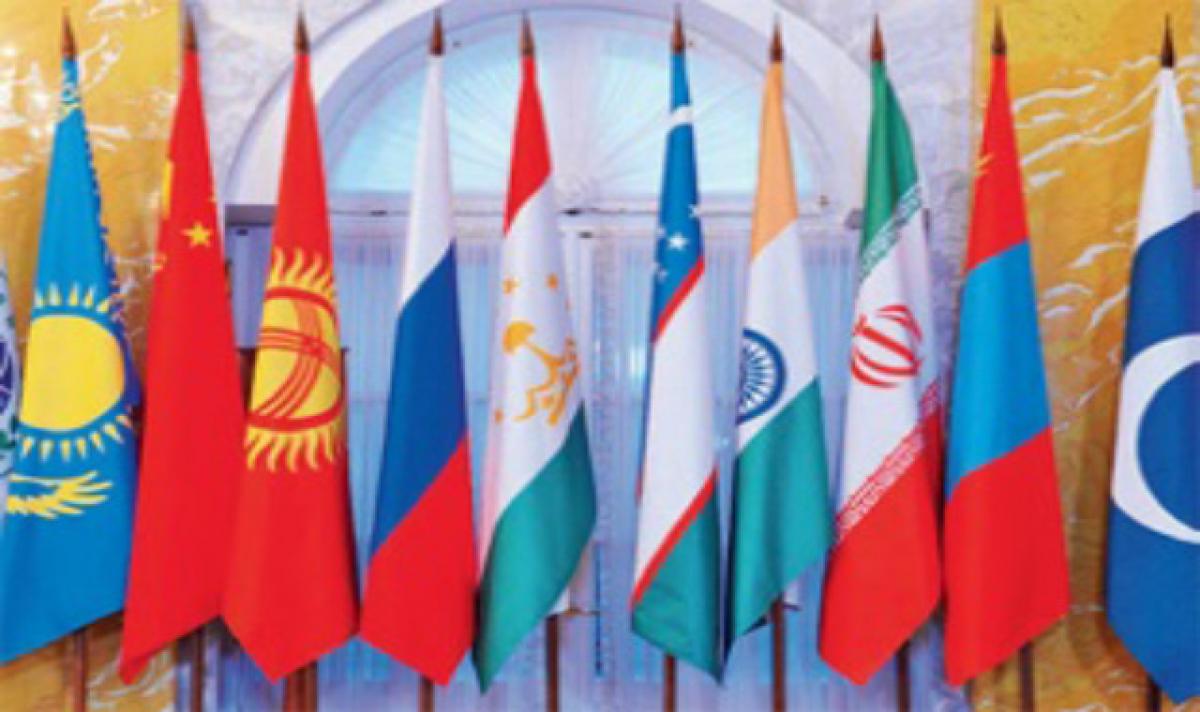Live
- Health School programme rolled out in Adilabad
- Musk names Microsoft as defendant in amended lawsuit against OpenAI
- Vishwak Sen Shares His Disappointment After Shraddha Srinath Turned Down His Offer
- AP Chambers to organise 3-day Business Expo-2024
- Gold rates in Delhi today surged, check the rates on 15 November, 2024
- Collector Prasanthi emphasises transparency in sand supply
- Don’t be fooled by brokers, MLA advises farmers
- Gold rates in Visakhapatnam today surges, check the rates on 15 November, 2024
- Tirupati: Student commits suicide
- Lenovo launches high-end tablet K11
Just In

India is expected to have a greater say in pushing for effective action in combating terrorism and on issues relating to security when it becomes a full member of the Shanghai Cooperation Organisation at the annual summit of the grouping, seen as a counterweight to NATO.
India is expected to have a greater say in pushing for effective action in combating terrorism and on issues relating to security when it becomes a full member of the Shanghai Cooperation Organisation at the annual summit of the grouping, seen as a counterweight to NATO.
India was admitted as a full member of the Shanghai Cooperation Organisation (SCO) during the summit of the regional grouping on June 8-9 in Kazakhstan, where Prime Minister Narendra Modi was present. The influential Eurasian political and economic bloc represents 42 per cent of the world's population, 20 per cent of its GDP and 22 per cent of its territory.
The Shanghai Cooperation Organisation (SCO) is a permanent intergovernmental international organisation, the creation of which was announced on 15 June 2001 in Shanghai (China) by the Republic of Kazakhstan, the People's Republic of China, the Kyrgyz Republic, the Russian Federation, the Republic of Tajikistan, and the Republic of Uzbekistan. It was preceded by the Shanghai Five mechanism.
The Shanghai Cooperation Organisation Charter was signed during the St.Petersburg SCO Heads of State meeting in June 2002, and entered into force on 19 September 2003. This is the fundamental statutory document which outlines the organisation's goals and principles, as well as its structure and core activities.
The SCO's main goals are as follows: strengthening mutual trust and neighbourliness among the member states; promoting their effective cooperation in politics, trade, the economy, research, technology and culture, as well as in education, energy, transport, tourism, environmental protection, and other areas; making joint efforts to maintain and ensure peace, security and stability in the region; and moving towards the establishment of a democratic, fair and rational new international political and economic order.
The SCO comprises six member states, namely the Republic of Kazakhstan, the People's Republic of China, the Kyrgyz Republic, the Russian Federation, the Republic of Tajikistan, and the Republic of Uzbekistan. At present, it has six observer states, namely Afghanistan, Belarus, India, Iran, Mongolia and Pakistan.
Delhi recently turned down Chinese request to join the Belt and Road Forum in Beijing last month. India believes a rising China with very close proximity to Pakistan poses problems for India more than the United States and the West. Then, it remains to be seen how it will benefit from becoming a full member of a Chinese-led SCO. Pakistan was also admitted along with India.

© 2024 Hyderabad Media House Limited/The Hans India. All rights reserved. Powered by hocalwire.com







